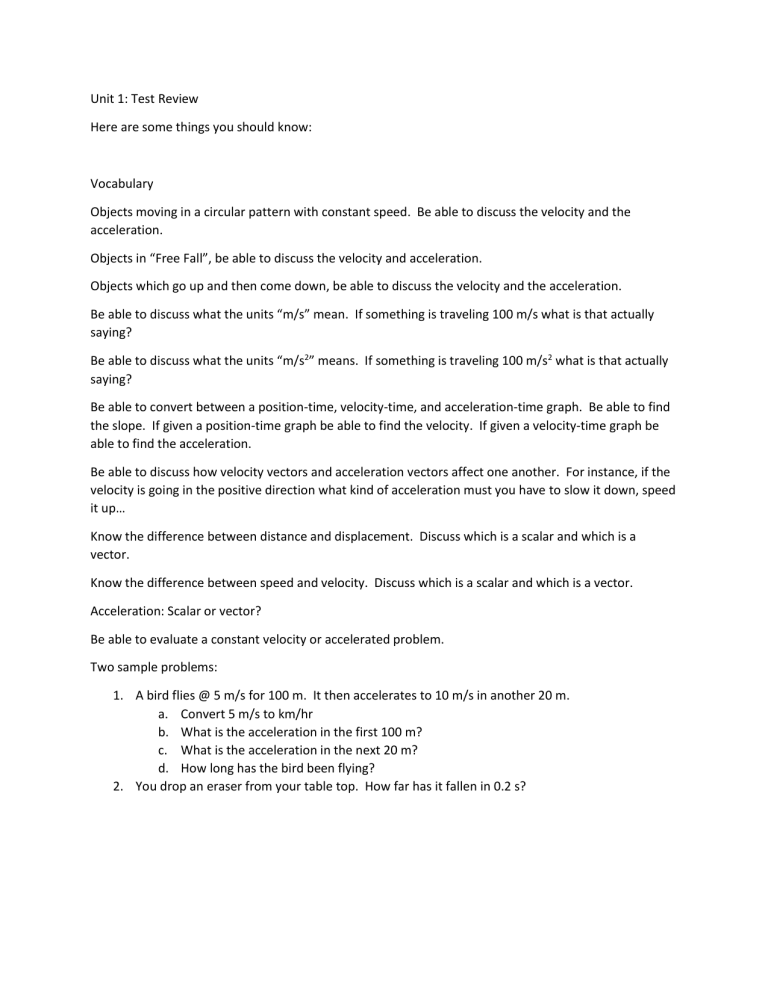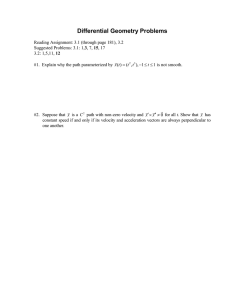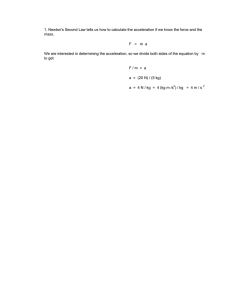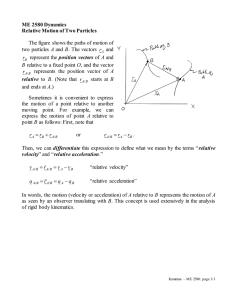Unit 1 Test Review 201718
advertisement

Unit 1: Test Review Here are some things you should know: Vocabulary Objects moving in a circular pattern with constant speed. Be able to discuss the velocity and the acceleration. Objects in “Free Fall”, be able to discuss the velocity and acceleration. Objects which go up and then come down, be able to discuss the velocity and the acceleration. Be able to discuss what the units “m/s” mean. If something is traveling 100 m/s what is that actually saying? Be able to discuss what the units “m/s2” means. If something is traveling 100 m/s2 what is that actually saying? Be able to convert between a position-time, velocity-time, and acceleration-time graph. Be able to find the slope. If given a position-time graph be able to find the velocity. If given a velocity-time graph be able to find the acceleration. Be able to discuss how velocity vectors and acceleration vectors affect one another. For instance, if the velocity is going in the positive direction what kind of acceleration must you have to slow it down, speed it up… Know the difference between distance and displacement. Discuss which is a scalar and which is a vector. Know the difference between speed and velocity. Discuss which is a scalar and which is a vector. Acceleration: Scalar or vector? Be able to evaluate a constant velocity or accelerated problem. Two sample problems: 1. A bird flies @ 5 m/s for 100 m. It then accelerates to 10 m/s in another 20 m. a. Convert 5 m/s to km/hr b. What is the acceleration in the first 100 m? c. What is the acceleration in the next 20 m? d. How long has the bird been flying? 2. You drop an eraser from your table top. How far has it fallen in 0.2 s?


